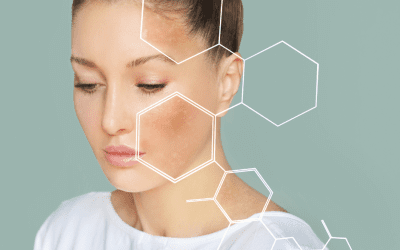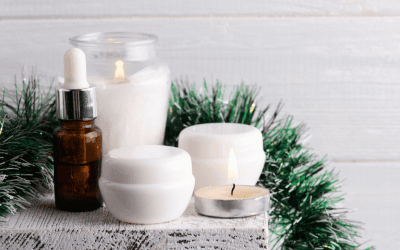A radiant and youthful complexion begins at home. Whether you’re looking to manage specific skin concerns, reduce the signs of ageing, or just maintain a healthy glow, a home skincare routine can help you feel more confident every day.
Knowing Your Skin Type
To get the best skincare at home, you first need to know your skin type. Each person’s complexion will have skincare requirements, so some products and treatments will give you better results than others. Once you’ve determined your skin type, you can find the beauty products most suitable for you.
Normal Skin
If your skin generally feels balanced and doesn’t become oily or dry, you most likely have ‘normal skin’. Most beauty products should be suitable for you.
Oily Skin
You may have an oily skin type if you notice your T-zone gets shiny or greasy. Oily skin also tends to be more prone to acne.
Dry Skin
If your skin is dry, it may feel irritated or tight, especially after washing your face.
Combination Skin
People with combination skin tend to have an oily T-zone but dry cheeks.
Sensitive Skin
Does your skin become irritated easily and react to most products? If so, you probably have sensitive skin.
Morning and Evening Skincare at Home
When it comes to skincare at home, it’s a good idea to have two routines — one for the morning and one for the evening. This is because your skin is exposed to different conditions in the daytime and at night.
Cleansing, toning, and moisturising are the three main elements of a good home skincare routine — morning or evening — whether you have normal, dry, oily, combination, or sensitive skin. For best results, you can select cleansers, toners, moisturisers, and other beauty products designed for your skin type.
Cleanse, Tone and Moisturise
Cleansing, toning, and moisturising are the foundations of a good skincare routine at home.
Cleanse
Cleansing washes your face, removing any build-up of dirt and dead skin cells from your pores. Whether you use a cleansing lotion or face wash, massage it into your face with upward circular strokes, then rinse.
Tone
A good toner removes any last traces of dirt and restores your skin’s pH balance. It also prepares your skin so it can absorb moisturiser more effectively. You can use the same cleanser and toner in the morning and evening but try to stick with an alcohol-free toner, so it doesn’t dry your skin.
Moisturise
Moisturising hydrates your skin to keep it looking plump and youthful. In the morning, use a moisturiser with SPF to protect you from the sun’s UV rays. SPF is less of a concern in the evening, but you’ll want a really nourishing moisturiser or night cream.
Extra Steps
Even if your moisturiser contains SPF, it’s vital to use sunscreen (at least SPF 30) to protect you from the sun. Exposure to UV rays brings potential cancer risks and can also age you prematurely.
If you have concerns about dark circles or puffiness under your eyes, you might like to try an eye cream to hydrate and lighten.
And if the main factor you’d like to address is ageing, why not read our article on the best anti-ageing skincare routine for more advice?
Skincare Treatments
As well as cultivating an effective skincare routine at home, you might like to consider skincare treatments. Whether it’s to target a specific area or promote an overall healthy complexion, there are a variety of skincare treatment options you could explore. For example, chemical peels can help tighten pores and restore skin elasticity. While medical-grade skincare products treat acne, balance pigmentation, and reduce fine lines.
If you’d like to discuss your options, contact us for a free consultation, or pop into our Honiton or Exeter clinic.



